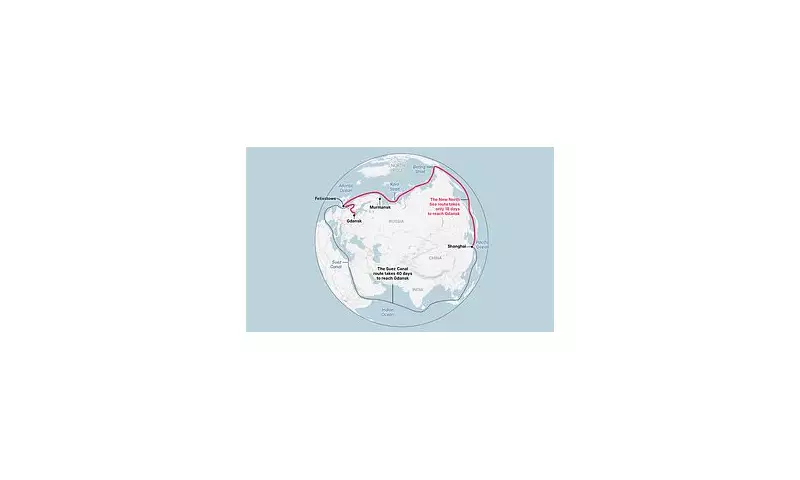
In a move that underscores the profound impact of climate change on global commerce, a Chinese mega-ship is charting a course through the rapidly melting Arctic to reach the United Kingdom. The 965-foot vessel, 'MSV Nordic Orion', is utilising the famed Northeast Passage to halve the standard 40-day voyage from Asia to Britain.
A New Era for Maritime Trade
This audacious journey represents a significant strategic pivot. Traditionally, container ships travelling from China to the UK are forced to navigate the Suez Canal, a longer and sometimes politically volatile route. The opening of the Arctic shortcut, once an impassable frozen frontier, is rewriting the rules of international trade and logistics.
Ice-Breakers Pave the Way
The voyage is not without its challenges. While warmer temperatures have reduced ice coverage, the path is still perilous. The ship is being escorted by powerful Russian ice-breakers to clear a safe channel through the remaining ice floes. This collaboration highlights the complex international cooperation required to exploit this new route.
Geopolitical and Environmental Implications
The successful traversal of the Northeast Passage by a commercial vessel of this size carries heavy symbolism. It signals Beijing's growing interest in the Arctic and its resources, a region where other global powers, including Russia and the United States, also have significant stakes.
Environmental groups are watching with concern. While the shorter journey could potentially reduce carbon emissions per trip, the increased accessibility of the Arctic raises fears of oil spills, black carbon pollution from ship engines, and disruption to fragile ecosystems. The very existence of this route is a stark reminder of the accelerating pace of polar ice melt.
The Future of UK-China Trade
For British ports and importers, the development promises faster delivery times for goods from the Far East. However, it also presents new strategic considerations for the UK government regarding its own Arctic policy and its economic relationship with China in a rapidly changing world.





